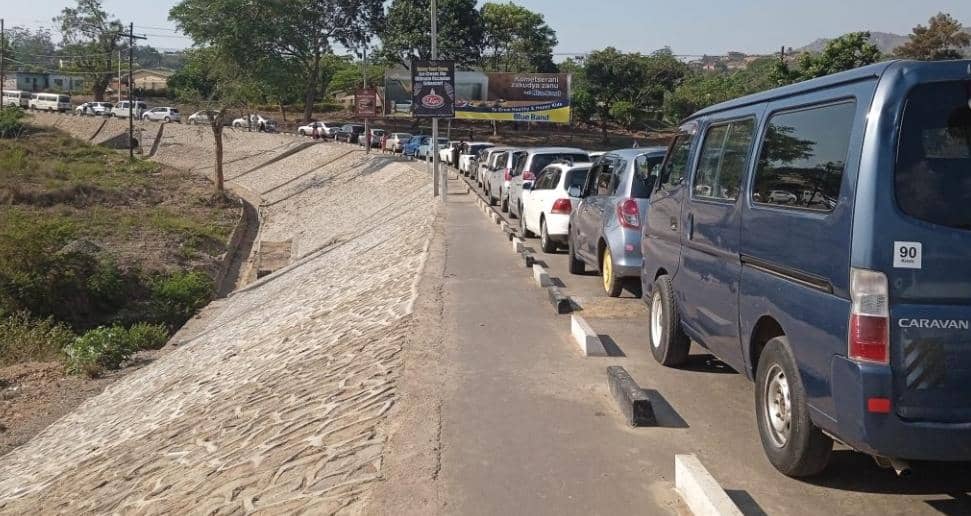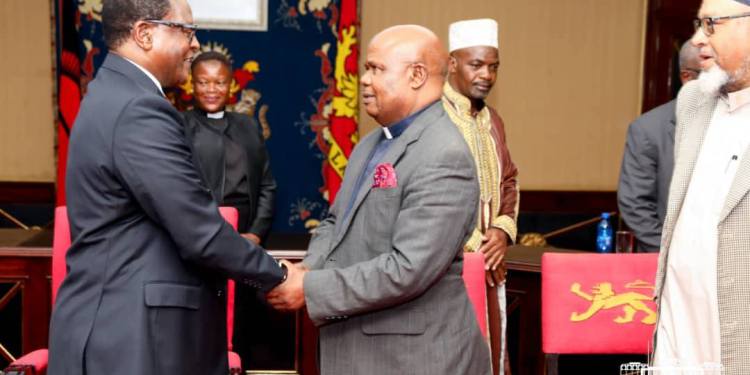By Burnett Munthali
The Economist Intelligence Unit (EIU), based in the United Kingdom, has suggested that Malawi’s President Lazarus Chakwera could face impeachment before the end of the current year due to the economic challenges plaguing the country.
Rising Economic Struggles
Political and economic indicators reflect a significant increase in the cost of living, exacerbated by shortages of fuel and food. Approximately 22% of the population is grappling with severe food insecurity, which could trigger widespread protests.
The EIU report indicates that public dissatisfaction is mounting against Chakwera’s administration due to poor governance and economic mismanagement. Despite this, the Democratic Progressive Party (DPP), which holds 62 seats in the National Assembly and ruled the country from 2014 to 2020, is also struggling to gain traction with the electorate.
The report states, “However, the DPP, which has a contentious economic legacy and a history of corruption under former President Peter Mutharika, is not endearing itself to the electorate either.”
The contentious 2019 election results, which initially favored Mutharika, followed by a controversial rerun in 2020, have further complicated the DPP’s political standing.
Political Landscape and Potential Coalitions
The EIU anticipates that the Malawi Congress Party (MCP) could explore alliances with smaller parties and independent candidates to solidify its power, reminiscent of strategies employed after the 2019 elections.
Jessie Kabwila, the MCP spokesperson, has called for increased collaboration among parties to navigate the political landscape effectively. In contrast, DPP spokesperson Shadric Namalomba has stated that the DPP will not directly engage with the impeachment discourse, citing a lack of viable avenues for influencing public opinion or parliamentary proceedings.
Despite the DPP’s reluctance to comment on the issue, Namalomba affirmed that the party believes it is well-positioned to reclaim power in the 2025 elections, arguing that they possess strong leadership and sound economic management strategies, unlike the current administration.
The Challenges for Chakwera
Political analyst George Chaima noted that while Chakwera faces significant challenges in governance, the likelihood of him being ousted through impeachment remains low, particularly given the current political dynamics. “The EIU’s findings stem from interviews and interactions with various political stakeholders, and it is not surprising that discussions about Chakwera’s removal are circulating among some factions,” he stated.
Humphrey Mvula, another political analyst, echoed this sentiment, suggesting that despite the ongoing economic hardships, there is no concrete indication that an impeachment process will gain momentum before the elections scheduled for September 16, 2025.
Mvula questioned the validity of the EIU’s predictions and highlighted the complexities of the current political environment, noting that the DPP and MCP remain the two dominant political parties in Malawi, with a fragmented opposition likely hampering any significant shifts in power.
Legislative Powers and Impeachment Processes
According to Section 86 of Malawi’s Constitution, the National Assembly has the authority to impeach the president with a two-thirds majority vote. Grounds for impeachment include violating constitutional provisions or failing to uphold the law.
In the 2019 elections, the MCP secured 59 seats in the 193-member assembly, while the DPP obtained 53. Other parties, including the UTM and the United Democratic Front, hold a minority presence.
The EIU’s report, released on October 14, 2024, projects that economic difficulties will persist, influencing public sentiment leading up to the 2025 elections. The exit of the UTM from the Tonse Alliance has exacerbated the DPP’s challenges, resulting in a weakened coalition.
Future Considerations
As economic hardships loom over Malawi, the potential for civil unrest is high, particularly as citizens grow increasingly frustrated with Chakwera’s governance. The EIU warns that unless the administration can stabilize the economy and address food shortages, the political landscape could shift dramatically in the lead-up to the elections.
Overall, the EIU report suggests a turbulent political environment, emphasizing that if the government cannot implement effective economic policies and restore public trust, the potential for political upheaval, including discussions around Chakwera’s impeachment, remains a pressing concern for the future of Malawi.




